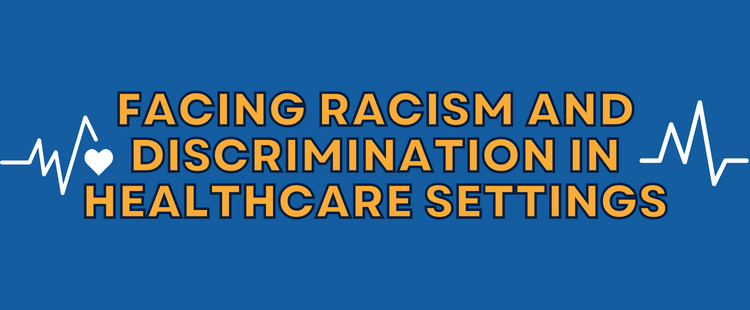Facing Racism and Discrimination in Healthcare Settings
Many individuals within the LGBTQ community face discrimination of various kinds throughout their life span. Though discrimination is seen as a social determinant of health one that affects the majority even more significantly is racism.
Racism is also a social determinant of health that operates on varying levels which includes institutional and structural. Ultimately racism limits access to various resources that then physiologically affects people within marginalized communities.
Individuals within the LGBTQ community who identify as queer with a range of expressions often face discrimination of many kinds. People who are within marginalized groups experience minority stress more often than their peers. These individuals are sometimes more vulnerable and face disparities while receiving healthcare services. So, not only does discrimination and stigmas cause health disparities associated with limited healthcare access, but it is also closely linked to economic and environmental disadvantages that create even more barriers.
We need more individuals within healthcare systems to complete culture sensitive and inclusive care competency trainings to learn more about how to provide quality care to all individuals seeking their services. According to the 2015 U.S. Transgender Survey, people are facing discrimination within housing, employment, and healthcare related facilities. As individuals have gone through these experiences it in turn has led to a greater need that continues to grow within the mental health realm. People are facing more stressors and some of life’s woes at an alarming rate due to a global pandemic. Stress levels of many individuals are increasing daily, and the proper resources must be made available to help those in greatest need.
The AAIC, recently shared that many black people are dealing with systemic disparities related to less access to health protecting resources. There tends to be a consistent and pervasive lack of resources which effects health outcomes related to cardiovascular disease and diabetes. These two diseases alone affect far more black people than any other race. Black individuals are enduring chronic exposure to racism which affects their mind and body. Some studies have even shown where these behaviors sometimes contribute to the development of cognitive decline in later years.
In conclusion, as individuals begin to age despite the inequalities, they have dealt with increased longevity can still be on the horizon. If you know someone who may be going through some of these things consider ways in which you may be able to help like starting a nutrition cooking group, a cycling group, and the list goes on. Try to keep holding onto the things that you value the most and bring you the most joy. Then, be willing to reach back and share some that joy with others.
AAIC. 2022. Experiences of racism associated with poor memory increased cognitive decline. Retrieved from www.tntribune.com.
USTS. 2015. 2015 U.S. Transgender Survey. Retrieved from https://blacktrans.org/us-trans-survey/





